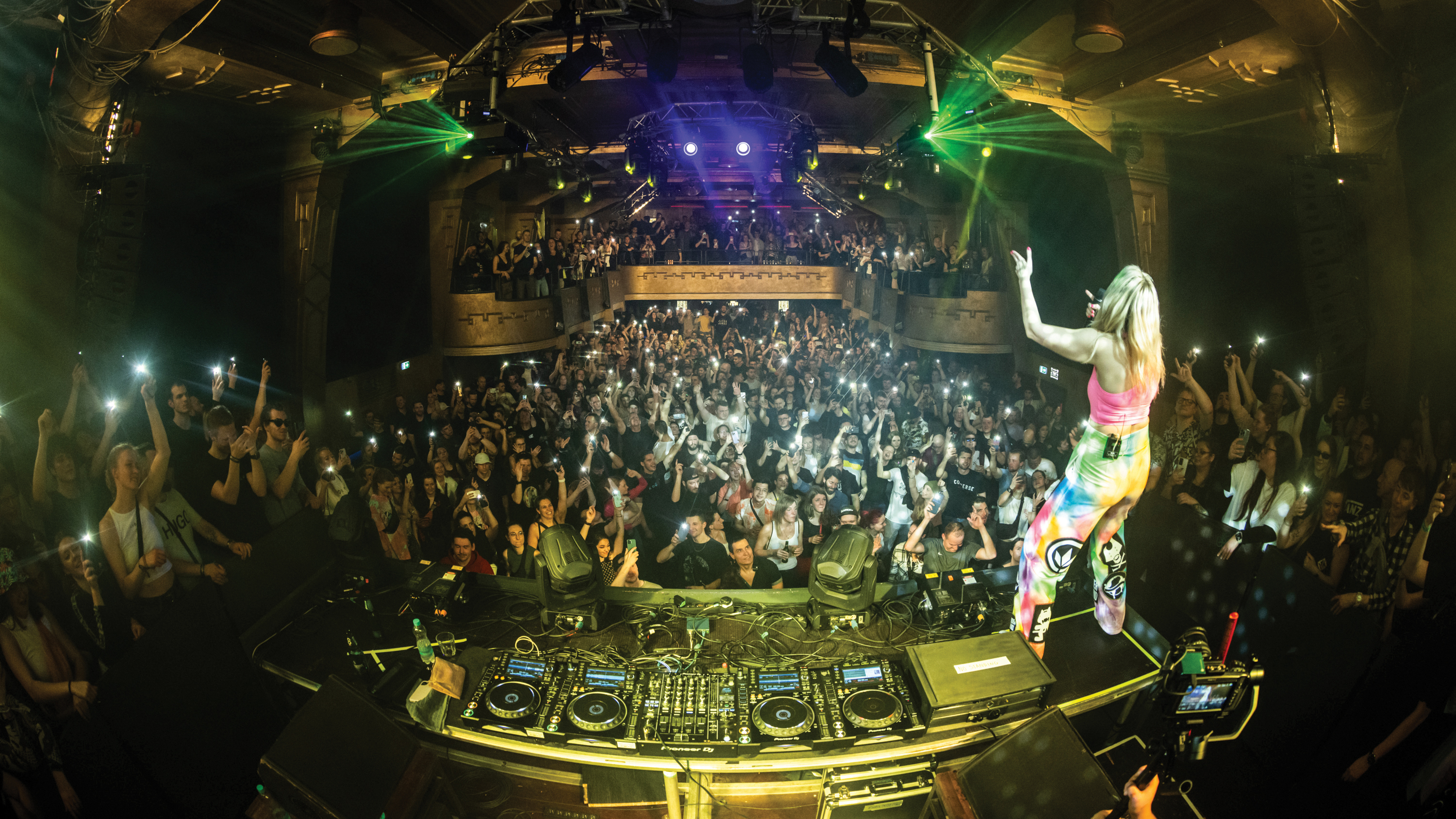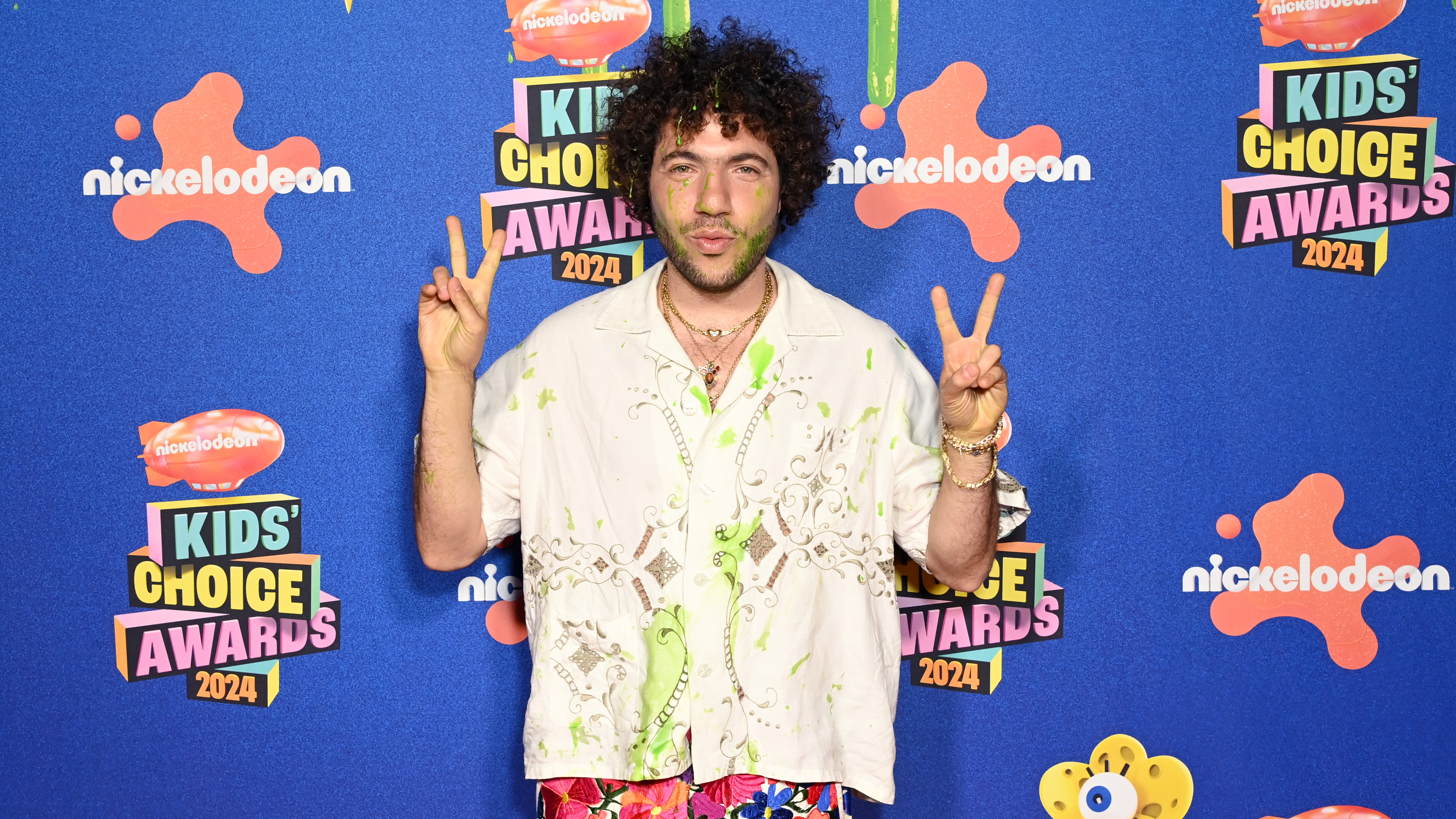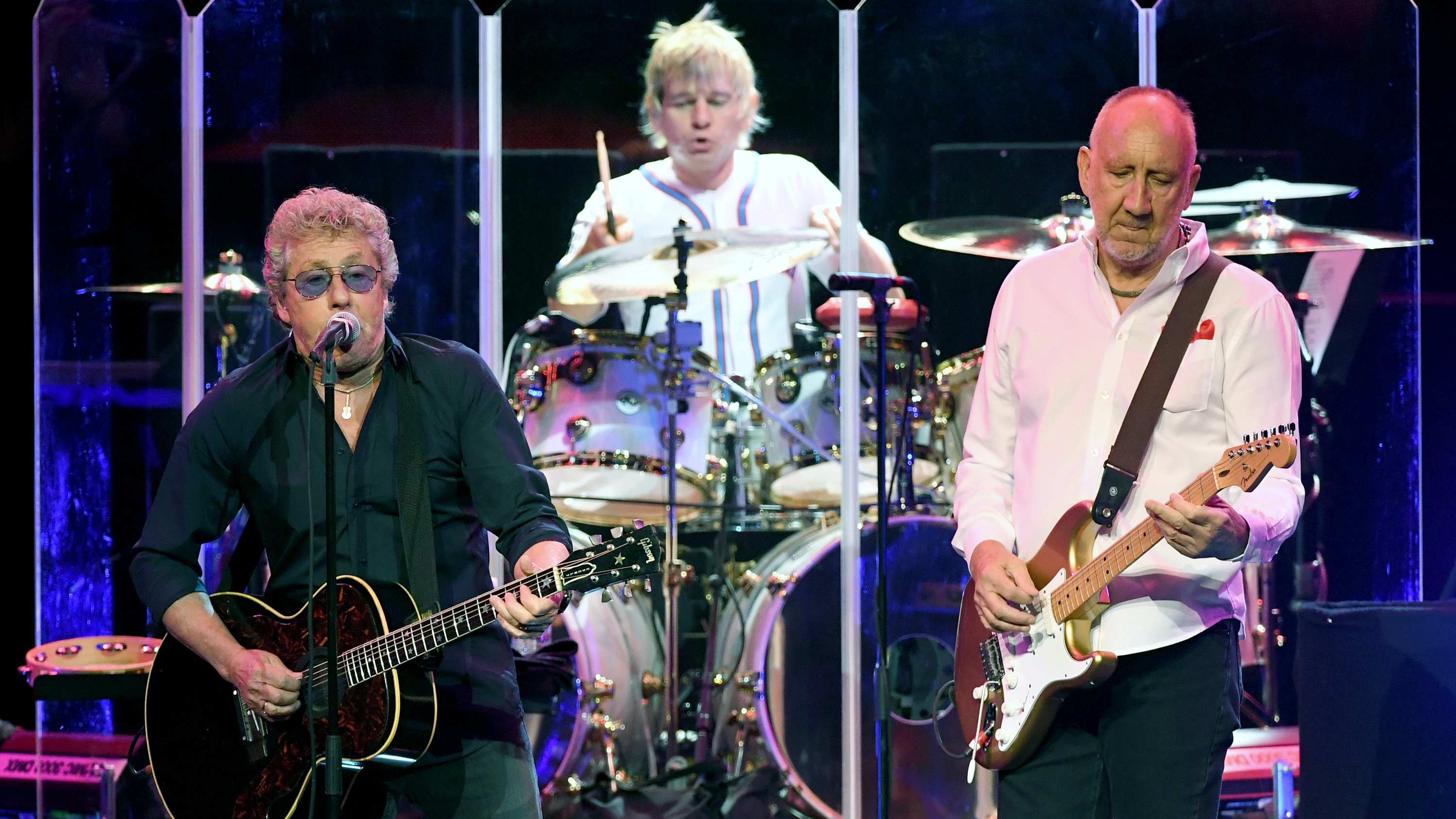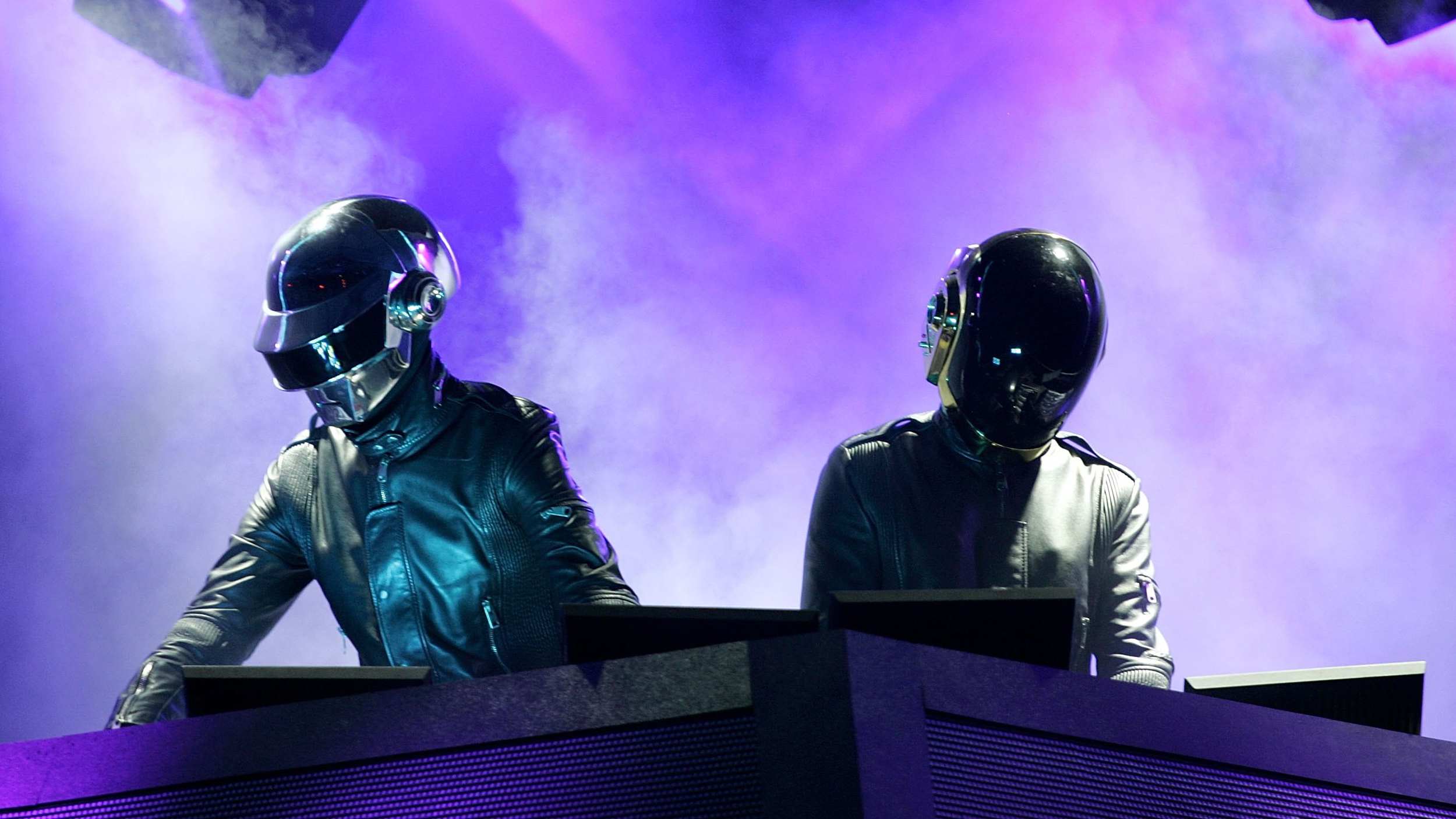"I know that I’ve got to put on a show. I want it to feel like a performance" – How Koven balance live vocals and DJ mixing
The bass duo's vocalist and DJ Katie Boyle on the unique challenges of her hybrid sets

UK duo Koven have made a name for themselves over the past decade with releases that touch on DnB, dubstep and bass music.
The duo comprises producer Max Rowat and vocalist and DJ Katie Boyle. Katie performs solo under the Koven moniker, after Max stepped back from live performance due to travel anxiety and now focusses on the duo's studio work. Having to balance mixing and singing in her performances, Boyle’s shows are unique in both gear setup and execution. We met up with Boyle to watch her break down how she plans Koven sets and the techniques she uses to balance vocals and beats.
Tell us about how Koven live shows work...
“We were playing shows together for a while, but then it just became too much for Max. We made the decision for me to start playing shows by myself, which was probably only a few years into me being involved. We did a tour together in Australia, New Zealand in January 2017, and that was the tool that really made him go, ‘I can’t do this’.
“I’ve been doing shows by myself now for seven years, which has ended up working out a lot better than we thought it would. Initially, it was a case of figuring out how to do the bookings we already had. We had a setup where we would both DJ and then I would pick up the mic and go around the front and sing, but I realised that I could just sing some of the tracks behind the decks while I’m still mixing. It took a lot more practice to get the timing right for everything. I still wanted there to be a performance element. I didn’t want to be stationary behind the decks. Now I make sure when I’m planning sets that I know how long I’ve got to run to the front and perform before I need to go back to play the next track."
How long have you been DJing?
“I started to learn to DJ about 12 years ago, I’ve been kind of on-again off-again. But in terms of properly taking it seriously, it’s probably been about 10 years, which is basically since I joined Koven. When I started working with Max, that’s when things got a lot more serious and I put a lot more time into it.
Get the MusicRadar Newsletter
Want all the hottest music and gear news, reviews, deals, features and more, direct to your inbox? Sign up here.
“The way that I DJ would be fairly standard to most people, but then there are some different and slightly more unique ways of doing it to incorporate the singing. Those elements are things that I had to teach myself in order to make it work being a singing DJ.
“That includes thing like bringing in a lot of tunes with the faders up. Sometimes I won’t have the ability to beatmatch, because I’m singing. I have to trust that I’m bringing a track in at exactly the right point.”
How much original music do you usually play during a Koven set?
“Typically within, say, an hour set, I’d play about 40 to 50 tracks, and I’d say about 30% of them would be original tracks, although the Koven tracks take up a larger portion of the set. In terms of performance time, it’s like 50% originals, 50% mix sections, which is probably quite normal for most DJs who also produce. The only difference is that I’m picking up the microphone to perform all of the Koven music. That works in some different ways.
“Sometimes I’ll bring a track in with the fader up, and I’ll just start singing straightaway. Because I know what’s coming in, I know the key of it, I have to kind of trust myself to get the key right. But normally it works. Other times I’ll give myself more time to perform a track, so I can go out the front to sing it and perform it, I’ll play the whole track and get back with just enough time to come and hit the next track in.”
We won [the promoters] over, and we won the crowds over, and actually it did so much more for our profile
Do your sets require a bit more planning then?
“For any big show – like any headline shows or festival bookings – I’ll make sure they’re planned to a tee, because I want the performance element to be as important as the DJ side.
“If I was doing an after party or something, I’d wing it a bit more and that wouldn’t faze me. But if I’m playing a big stage I know that I’ve got to put on a show. I always think, if I went to see Coldplay or Katy Perry or someone like that, I know for a fact that their sets are planned. That’s what I want to incorporate. I don’t want it to be an on-the-fly DJ set. I want it to feel like a show, and a performance.”
Is that what Koven fans have come to expect when they see you?
“I think people want that and it works well. I don’t think there’s as much stigma now about planning DJ sets. Everybody does it these days. Even the best DJs still have probably like a 90% plan.
“In the past I’d never want to say that I planned my sets, but now I’ve realised that actually it’s just quite respectful to the crowd that you put that much effort and time in. Don’t get me wrong, I’m not taking it away from DJs who do it on the fly, because that is also a massive skill and also respectful to the crowd. But I don’t think planning a DJ set is frowned upon anymore.”
How much of a technical challenge was it working out how you’d do the whole show on your own?
“To be honest, it was quite amazing how easy the transition was. It was kind of easier because I only had myself to worry about, and I knew what I was doing. It’s actually harder to plan a set with someone else, because you’re both trying to work out when you’re going to do which bit. A lot of back-to-back sets are quite stressful because everybody’s trying to work around what someone else is doing.
“It’s a trust issue. It was like, ‘that’s not what we booked, it’s not what we were expecting.’ But once they saw the show, they were like, ‘Okay, that makes sense.’ Then we won them over, and we won the crowds over, and actually it did so much more for our profile. So it turned out to be good for everybody.”
Koven & Circadian – The Outlines is out now.
Special thanks to Steve White / Patchwork London.


I'm the Managing Editor of Music Technology at MusicRadar and former Editor-in-Chief of Future Music, Computer Music and Electronic Musician. I've been messing around with music tech in various forms for over two decades. I've also spent the last 10 years forgetting how to play guitar. Find me in the chillout room at raves complaining that it's past my bedtime.
“I’m looking forward to breaking it in on stage”: Mustard will be headlining at Coachella tonight with a very exclusive Native Instruments Maschine MK3, and there’s custom yellow Kontrol S49 MIDI keyboard, too
“Turns out they weigh more than I thought... #tornthisway”: Mark Ronson injures himself trying to move a stage monitor









